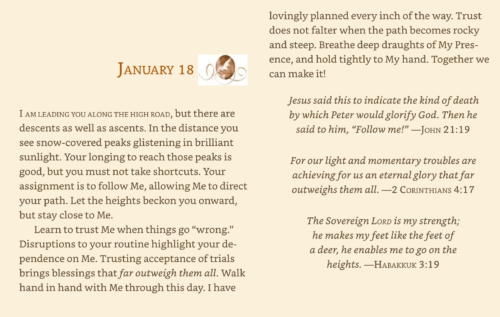Unpleasant Truths
For theologian Megan McKenna, the biblical prophets carried a painful burden on behalf of truth and justice:
The prophets ached over injustice and were torn to shreds by it. They had no life but God’s honor—which was the only hope of the poor. They were reminders in the flesh of that honor—painful, angry truth-tellers who knew what was wrong. They made people nervous, sick to their stomachs, vicious, and self-righteous. Or worse, after all the reactions, the prophets were ignored—the people didn’t change, didn’t convert. And then the prophets’ words came to pass: the warnings, the threats, and the punishments that were the natural consequences of people’s behavior came about.…
The prophets’ vocation is to cry out—to God, to the air, to any open heart; they cry out on behalf of God and on behalf of the poor because no one is listening except God. They cry out for those no one heeds, except maybe in passing in lip service.…
The prophets often see us as nearsighted, meaning we can only see what is immediately under our noses, connected to our own lives. We have lost sight of the vision of hope, of the future that God intends, while we have been concentrating with total self-absorption on our own immediate desires. We are like drivers lost in a fog of our own obsessions, unable to see the road clearly. And so we need the prophets, the far-seeing ones, the dreamers in broad daylight, the long-distance high beams that show us glimpses of where we are going and what the outcome of our choices and lifestyles will be. One way to define a prophet is a person who sees so clearly what is happening in the present moment that he or she can tell us what is going to happen if we don’t change immediately and radically.
McKenna tells of the transformational wisdom behind the prophet’s dramatic messages and methods:
The prophet uses every resource at his or her disposal. Weeping, raging, crying out, criticism, blessings and curses, storytelling, singing, dramas acted out, possessions and even cities destroyed, food eaten or left to rot, ingenious set-ups and insults—all serve only one purpose: the conversion of heart and the doing of restitution to rebalance and heal the world again. However prophets may prophesy, their integrity is shown by the way in which they give up their very lives as testimony and witness as they side with the forgotten and the lost ones and loudly proclaim that God, who is aware of their pain and feels their suffering as [God’s] own, will not allow that pain and suffering to continue. God is not indifferent to or far from anyone’s life, but rather draws near to those who know pain because of the sin and indifference of others. The prophet loudly insists that God is not impartial and that God will not allow anyone who professes belief in the Holy to harm another.
Anger Does Its Work
Prophets are often known for their anger against injustice. CAC teacher Brian McLaren makes a connection between anger and love:
I think about things I love … birds, trees, wetlands, forested mountains, coral reefs, my grandchildren … and I see the bulldozers and smokestacks and tanks on the horizon.
And so, because I love, I am angry. Really angry.
And if you’re not angry, I think you should check your pulse, because if your heart beats in love for something, someone, anything … you’ll be angry when it’s harmed or threatened.
To paraphrase René Descartes (1596–1650): I love; therefore, I’m angry. […]
Anger makes most sense to me through an analogy of pain. What pain is to my body, anger is to my soul, psyche, or inner self. When I put my hand on a hot stove, physical pain reflexes make me react quickly, to address with all due urgency whatever is damaging my fragile tissues. Physical pain must be strong enough to prompt me to action, immediate action, or I will be harmed, even killed.
Similarly, when I or someone I love is in the company of insult, injustice, injury, degradation, or threat, anger awakens. It tells me to change my posture or position; it demands I address the threat.
McClaren shares scriptural passages that urge us not to react in anger, and describes how contemplative practice can direct our anger into loving action:
Don’t be overcome with evil. Overcome evil with good. (See Romans 12:21).
When someone strikes you on the right cheek, turn the other cheek. (See Luke 6:29).
Do not return evil for evil to anyone. (See Romans 12:17).
Bless those who persecute you. Bless, and do not curse. (See Romans 12:14).
In each case, we’re given alternatives to our natural reactions, alternatives that break us out of fight/flight/freeze, mirroring, and judging. In the split second when we take that long, deep breath, we might breathe out a prayer: “Guide me, Spirit of God!” We might pause to hear if the Spirit inspires us with some non-reactive, non-reflexive response. […]
Anger does its work. It prompts us to action, for better or worse. With time and practice, we can let the reflexive reactions of fight/flight/freeze, mirroring, and judging pass by like unwanted items on a conveyor belt. Also, with practice, we can make space for creative actions to be prompted by our anger … actions that are in tune with the Spirit of love, joy, peace, patience, kindness, gentleness, faithfulness, and self-control (see Galatians 5:22) … actions that overcome evil with good and bring healing instead of hate.
So, yes, you bet I’m angry. It’s a source of my creativity. It’s a vaccination against apathy and complacency. It’s a gift that can be abused—or wisely used. Yes, it’s a temptation, but it’s also a resource and an opportunity, as unavoidable and necessary as pain. It’s part of the gift of being human and being alive.
